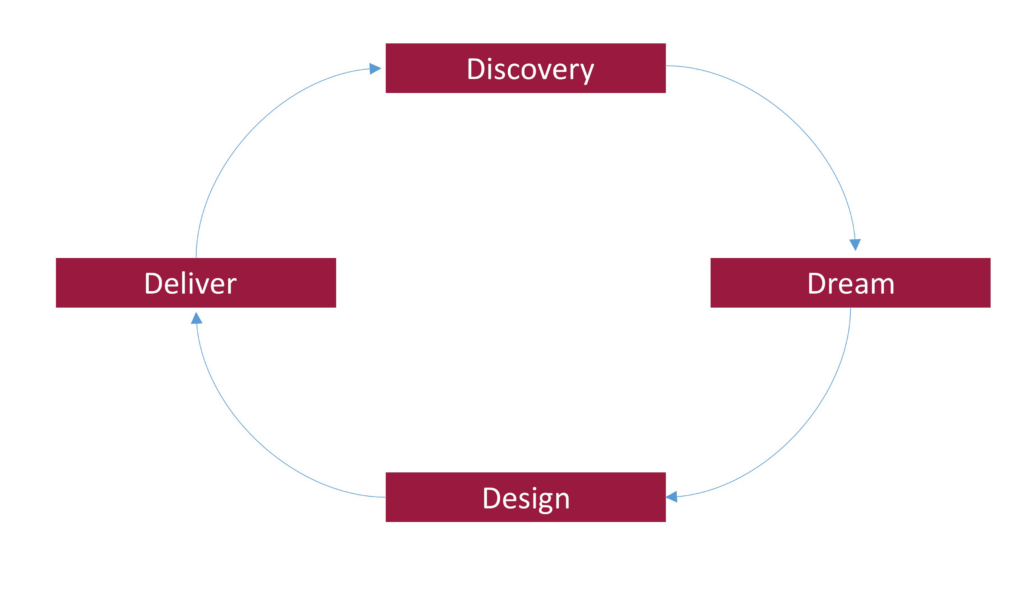12 Apr 4D Vision
Appreciative Inquiry (AI) is a problem solving technique that emphasises what has worked well in the past, rather than what has gone wrong, when addressing an existing problem. Focusing on what has previously worked well allows individuals to develop solutions to the problem, through improvements and developments to the existing issue. 4D Vision is an example of an AI problem-solving technique. The cycle of discover, dream, design and deliver helps to set out a strategy for developing solutions to an existing problem; a graphical representation is shown below.
Discover – The first stage of the process asks team members to focus on the best performance experiences they have had in the past. This may be the most effective strategy, the most cohesive team or the best use of technologies. Highlighting previous positive experiences can be used as inspiration for formulating future successes.
Dream – The second stage of the cycle then asks team members to envisage a preferred future, with respect to the problem at hand. This builds on the inspirations of the first stage, getting individuals to imagine a future scenario where the outcomes of this particular problem were similar to their previous successes.
Design – Team members are then asked to design a strategy to reach this ‘dream’ scenario. This may entail how they will get there and who will be involved. Utilising the qualities and behaviours of individual team members is crucial at this stage, as well as determining whether the dream scenario can actually be achieved.
Deliver – Finally, team members are asked to put the vision into practice. By this time the aim, and how it will be achieved, will have been confirmed and it is up to the team to action the strategy effectively.
The 4D Vision problem solving technique is not a static strategy, but continuous development and learning should be utilised at each stage. The overall ‘dream’ may change throughout the process but this is not an issue as long as the design and deliver stages change accordingly.


